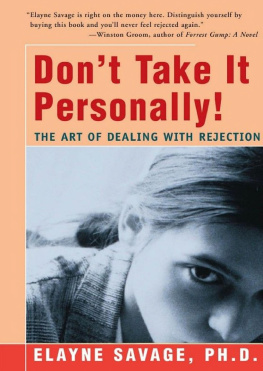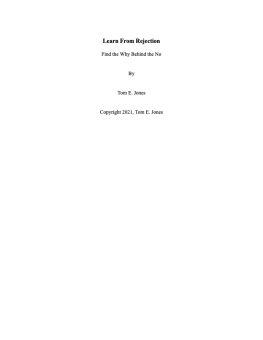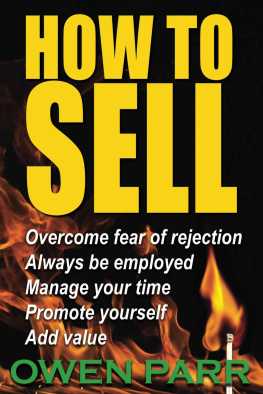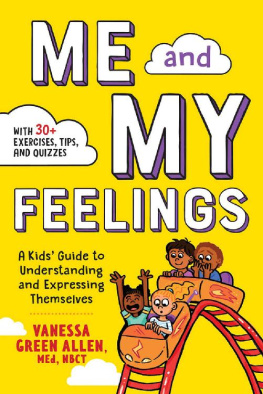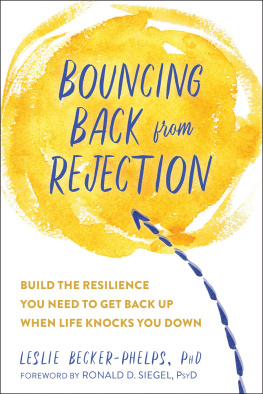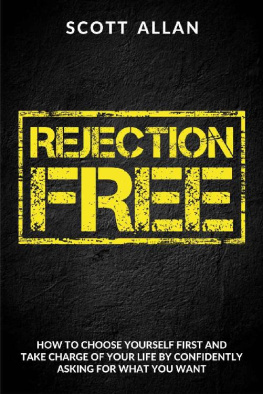Dont Take It Personally!
The Art of Dealing with Rejection
Elayne Savage, Ph.D.
To Jocelyn
For her wisdom and inspiration
But words are more powerful than perhaps anyone suspects, and, once deeply engraved in a childs mind, they are not easily eradicated.
May Sarton, I Knew a Phoenix
Contents
Introduction
Sometimes You Dont Know What Hit You
It happens so fasta barrage of words, a wilting look, an insulting tone of voiceand its as if a loose board springs up and whacks you on the forehead. You feel stunned. You lose your balance. You cant think straight. And then the hurt starts. You might freeze up and withdraw. You might be reduced to tears. You might explode into a blaze of rage. You wonder, Where on earth did that come from?
When someone elses words or actions lead to misunderstandings and hurt feelings, its because youre taking it personally. Rejection. Thats what it is and it just takes over. Your knee-jerk response is all out of proportion to the event itself and is most likely a reaction to rejection experiences dating back to childhood. But new hurts pile on top of old ones, and its as if each cutting remark opens up an old wound that never healed.
Over the years, signs and signals, tones and inflections, words and phrases pile up. These childhood rejection wounds may come from parents, teachers, siblings, aunts, uncles, grandparents, baby-sitters, or neighbors. Maybe they were intended, maybe they werent. Either way, they become self-rejecting beliefs that can tinge your adult relationships. Anything in that stockpile may trigger a defensive response that ignites into something larger than life.
When people endure a natural disaster such as an earthquake, or hurricane, or when they experience a frightening incident like a physical attack or an upsetting episode like a verbal attack, they may not only be reacting to the shock of the present crisis. They may also be reacting to all previous traumas, going back to childhood. Enduring rejection is similar. You may not only be reacting to the present situation but to past experiences as well. Some of these experiences may have been traumatic, and children experiencing them may have felt violated, betrayed, or rejected, making it hard to trust the world as a safe place. One woman described how she feels overwhelmed and is reminded of childhood experiences whenever she feels rejected. Its like the tornado hits and Im Dorothy.
As psychotherapist and researcher Elaine Aron describes in The Highly Sensitive Person, some children are especially sensitive to their environments and tend to get overstimulated, overaroused, and overwhelmed. These children feel constantly battered by a multitude of anxiety tornadoes.
Lets talk about two specific childhood anxiety tornadoes: the fear of being abandoned and the fear of losing our identity. What creates these fears? From our earliest years, we learn about relationships from our parents or other caregivers. But because were so dependent on them for care, these are by necessity unequal relationships. Children are inherently trusting until something happens to break that trust. Lying all alone in a crib, hungry or wet, can seem like an eternity to an infant with no sense of real time. That child might feel vulnerable to the parents whimwill that parent ever return and give comfort? At times, we worry theyll leave usand we come to fear the rejection of abandonment. At other times, we might become afraid our caregivers will overwhelm us with closeness, smothering out the spark of our identitiesanother rejection. How does this happen? They may not let us show independence or creativity or assertiveness or a sense of our own personhood. These dual rejection fearsabandonment and intrusionoften accompany us throughout life, causing no end of trouble in relationships.
Fear of possible rejection has lead many of us to withhold statements of love, acts of caring, sexual advances, or even movie or dinner invitations. Were often afraid to come forward with requests such as asking someone for a first date, requesting a raise, submitting artwork or manuscripts, or asking for favors like a ride to the airport. Its constricting and restricting, keeping us from being ourselves. When we hold back like this, people often misunderstand what our hesitancy is really about.
It helps to understand how adult rejection ordeals are rooted in childhood. Most of us wanted to be loved, cared about, and respected, but perhaps that didnt happen when we were growing up. There were so many disappointments. What if you wanted to be comforted by your mother, but she held back? What if you wanted your father to listen to your stories about the school day, but he just kept reading the paper, not paying attention, not even looking at you? Wouldnt it have been great to be praised once in a while for the times you did something well instead of having been chastised for the times you messed up? Wouldnt it have been nice once in a while to be told you did a good job, even for small thingslike the times you successfully carried milk to the tableinstead of getting yelled at the one time you spilled it? One man remembers, I rushed home once to tell my dad I got 92 percent on a math test. He looked at the grade, looked at me and said, So what happened to the other 8 percent? I think in that moment a part of me diedI quit trying.
Many of us encountered rejection messages, even though our parents or teachers may not have intended them. Perhaps we felt laughed at or invalidated or ignoredmaybe even disowned or abandoned. Perhaps someone inadvertently discounted our emotions by scoffing, Youre acting like a baby. Whats the matter with you, did your feelings get hurt? Perhaps they were trying to dictate how we should feel so they didnt have to examine their own feelings. But it felt like they were trying to take our feelings away.
Years later, were still affected by these timeworn childhood wounds. Early dings and dents take their toll, and were stunned when these old feelings reverberate into our adult lives and relationships, causing even little things to set us off. When we feel easily slighted, when our feelings continue to get hurt by the actions, words, and behaviors of others, or if we unrelentingly blame ourselves for any given situationwere taking it personally.
A songwriter I know uses musical terms to explain this process: I picture myself as a harp with all kinds of large and small debris swirling around out therewords, feelings, innuendos. Some float toward me, passing right through the spaces between the strings, and glide on by. But others seem to be hurled at me and hit the strings, striking a chord that reverberates way back to my past, bringing up old hurts. It really jangles my nerves and throws me off balance.
Id like to be able to ride out these encounters and not get so unnervedto reorchestrate and find my balance. First of all, I want to choose whether they stick or pass by. If they do stick, I want to be able to say, Okay, what can I do to make this noise musical? What works best for me is to chant to myself, Dont take it personally, dont take it personally. In fact, its become my mantra.
Theres no question that taking things personally can get in the way of both work and personal relationships. Sensitivity to rejection can be a symptom or attribute of a number of psychological issues: Adult Attention Deficit Disorder, depression, stagefright, eating disorders, highly sensitive nervous systems, shame-based issues, shyness, and abuse. And you may be able to think of others. Rejection, however, is more than just another slice of the pieit is also the crust that overlays these issues.
Next page
